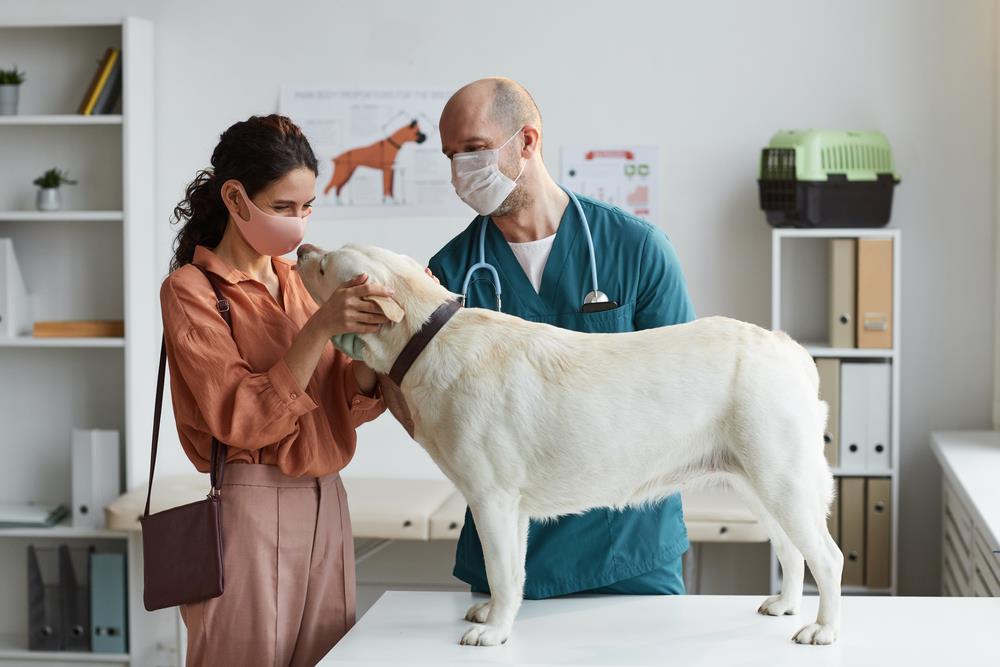Understanding the Importance of Active and Engaged Pets
Physical activity and mental stimulation are crucial elements in your pet’s life. Active and engaged pets enjoy significant health benefits, including enhanced cardiovascular health and improved joint mobility.
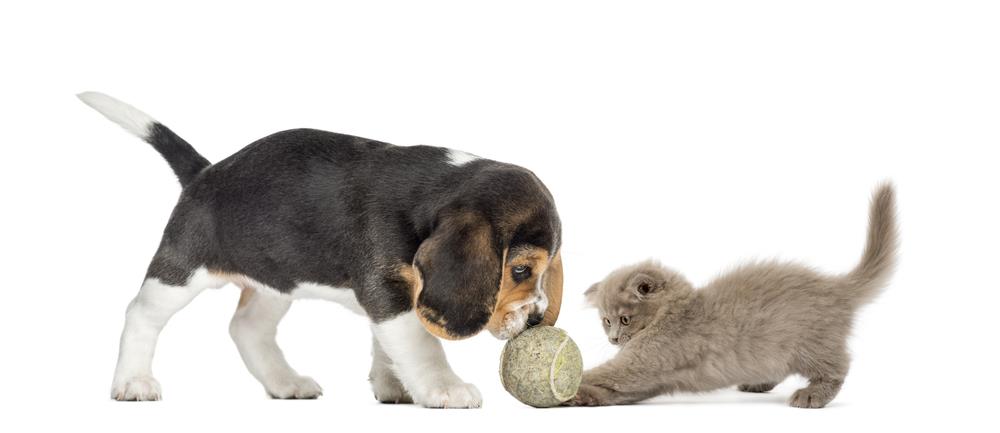
Moreover, mentally stimulated pets show fewer behavioural issues. A research study suggests that pets deprived of mental engagement are more susceptible to developing anxiety and destructive behaviours.
Lastly, an active lifestyle promotes stronger bonding between pets and their owners. Participating in physical activities together can enhance your understanding and connection with your pet, creating a deeper bond.
We recommend incorporating regular activities into your pet’s routine to ensure they remain active and engaged.
Actionable Steps to Keep Your Pets Active and Engaged
Keeping your pets active and engaged doesn’t have to be a daunting task. Here are some simple ways to incorporate physical and mental stimulation into their daily routine.
- Introduce interactive toys that challenge your pet mentally.
- Regular walks or play sessions are also key to keeping them physically active.
- Create a stimulating environment with climbing structures for cats or obstacle courses for dogs.
By investing time in keeping your pets active and engaged, you’re enhancing their overall wellbeing while strengthening your bond.
Understanding Your Pet’s Activity Needs
Each pet, much like humans, has unique physical activity requirements. Different breeds and types of pets, be it felines, canines, or birds, have varying activity needs. For instance, a Border Collie generally requires more exercise than a Bichon Frise. It’s crucial to understand these specific needs to ensure optimal health and wellbeing for your pet.
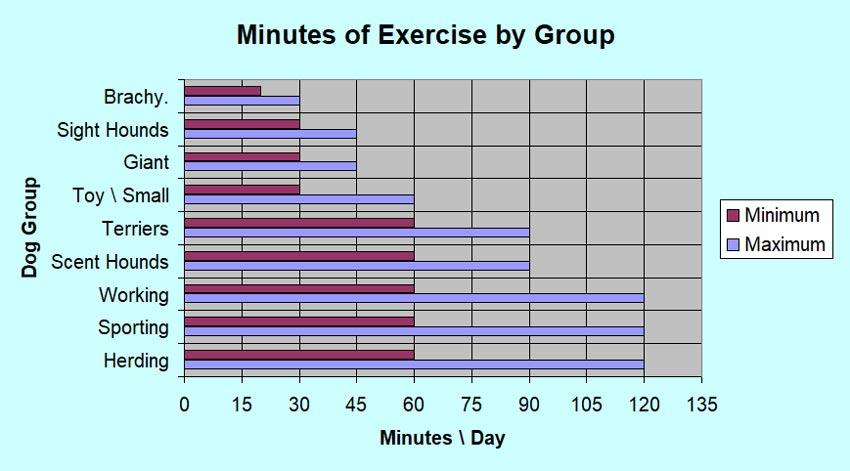
Assessing Activity Needs Based on Age, Health, and Temperament
Age, health status, and temperament are also vital considerations in determining your pet’s exercise needs. A young, healthy, and energetic Labrador, for instance, may require more playtime and walks compared to an older, less active breed. Similarly, pets with health conditions may require specific exercise routines as suggested by a veterinarian. The key is to strike a balance that keeps your pet healthy, happy, and in good spirits.
Types of Physical Activity for Pets
Optimal pet health requires more than just nutrition; it also needs regular physical activity. Among the most effective forms are walking, playing fetch, and swimming. The RSPCA recommends these activities as they stimulate not only your pet’s physique, but also their mental acuity.
Walking is an excellent cardio workout that benefits both you and your pet. Playing fetch can engage their hunting instincts while promoting agility. For breeds that love water, swimming is an excellent low-impact exercise.
Gradually Increasing Exercise Intensity
Just like humans, pets should have a gradual increase in exercise intensity. Start with short sessions and slowly extend the time as your pet’s stamina improves. It’s best to monitor your pet’s breathing and fatigue levels to avoid overworking them.
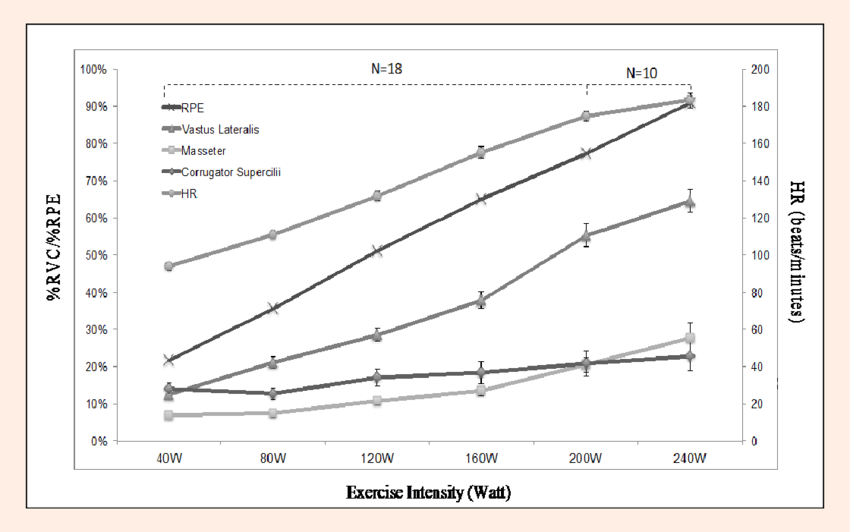
Always remember, every pet is unique and will require a personalised exercise plan. Consult your vet for the best advice tailored to your pet’s needs.
Mental Stimulation: A Key to Pet Engagement
Mental stimulation plays a vital role in keeping our pets active and engaged. Just as humans need mental challenges to stay sharp, our pets also benefit from activities that stimulate their minds. Mental stimulation can reduce problematic behaviours, improve overall well-being and increase bond between pet and owner.
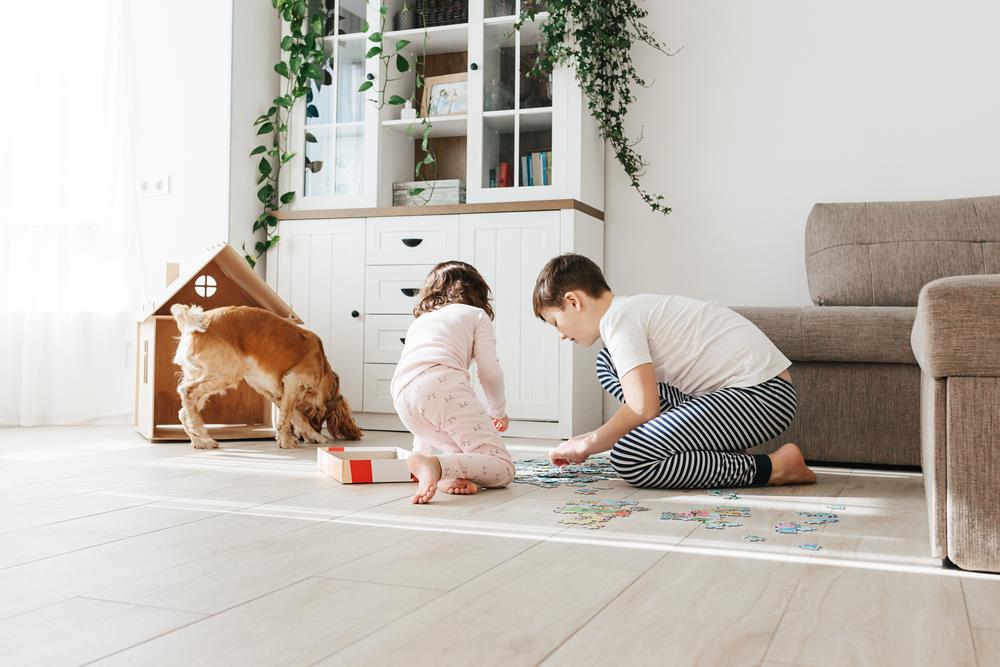
Activities for Mental Stimulation
- Puzzle Toys: Puzzle toys are perfect for keeping pets mentally active. They challenge pets to solve problems to access treats, providing mental exercise.
- Interactive Feeding: Turn mealtime into a game. Interactive feeders require pets to think and work for their food, promoting mental stimulation.
- Training Sessions: Regular training sessions with new commands or tricks provide both mental and physical stimulation for pets.
By incorporating these mental stimulation activities into your pet’s daily routine, you’ll not only have a more engaged pet but also deepen your bond with them.
Incorporating Play into Your Pet’s Routine
Amplifying your pet’s daily routine with regular playtime not only promotes their physical health, but can also improve their mental wellbeing. The key is consistency. Commit to setting aside dedicated playtime each day, ideally during the periods when your pet is most active. For instance, many dogs are most energetic in the mornings and evenings.
Fun and Engaging Indoor and Outdoor Games
When it comes to games, variety is crucial. Outdoor pursuits, like fetch or agility training, are excellent for high-energy pets. Indoor activities might include hide-and-seek or puzzle toys that promote mental stimulation.
Remember, every pet is unique, so take the time to discover what activities they enjoy most. With patience and creativity, you can help keep your pet active and engaged every day.
The Importance of Socialisation for Pets
Socialisation plays a crucial role in keeping your pets active and engaged. It equips them with the necessary skills to interact well with different environments, people, and other animals. This not only enhances their mental stimulation but also promotes their overall well-being. Pets that are well-socialised tend to be happier, healthier, and less likely to exhibit behavioural problems.

Safely Introducing Your Pet to New Experiences
- Start the process early: Puppies and kittens are most receptive to new experiences between 3 and 12 weeks old.
- Take it slow: Gradually expose your pet to new environments, people, and animals to avoid overwhelming them.
- Use positive reinforcement: Reward your pet with treats or praise to make the experience positive.
- Monitor their reactions: Observe your pet’s body language to gauge their comfort level.
The Integral Role of Diet in Your Pet’s Activity Levels
Understanding the impact of your pet’s dietary habits on their energy levels and overall health is pivotal for maintaining an active lifestyle. The right diet can significantly enhance your pet’s energy levels, metabolism, and overall wellbeing. A balanced and nutritious diet provides pets with the essential nutrients required to maintain an active lifestyle.
Nutritious Pet Foods and Treats for an Active Lifestyle
The selection of high-quality pet foods and treats is crucial in promoting an active lifestyle. Furthermore, choosing treats that are not only delicious but also nutritionally beneficial can make a substantial difference in your pet’s energy levels and overall health.
Remember, an active pet is a happy pet. By being mindful of your pet’s dietary needs, you can ensure they lead a healthier, more active lifestyle.
Recognising the Need for Professional Intervention
Our pets play a significant role in our lives, offering companionship and unconditional love. However, staying in tune with their health and wellbeing is crucial. Any sudden alterations in their behaviour or a lack of enthusiasm in activities they typically enjoy could indicate an underlying issue. These changes might manifest as reduced energy levels, changes in eating habits, or unusual aggression.
Seeking Professional Help
Should you identify any concerning changes in your pet’s behaviour, it’s crucial to seek professional help promptly. Veterinarians and pet behavioural specialists possess the necessary expertise to diagnose and address potential health or behavioural issues.
